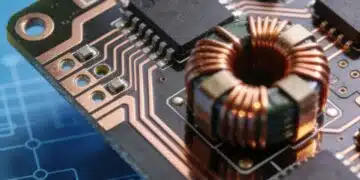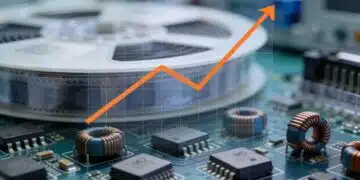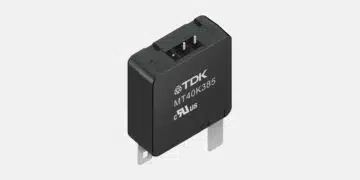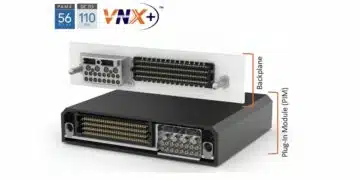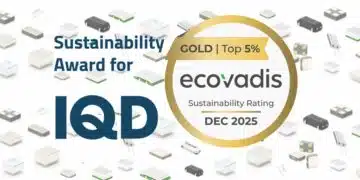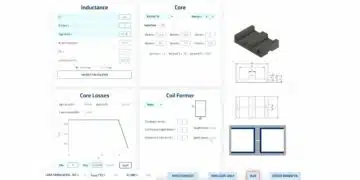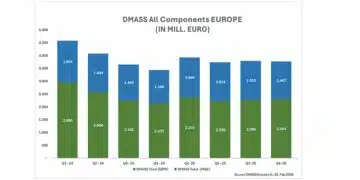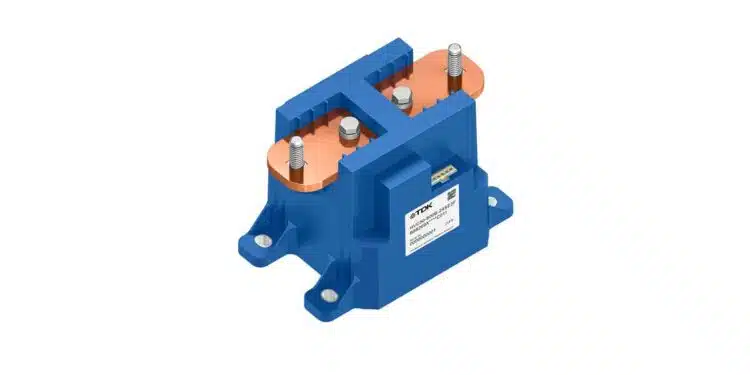TDK Corporation announces the HVC50, a high-voltage DC contactor designed for connecting or disconnecting lithium-ion batteries with up to 1500 V in traction applications, energy storage systems (ESS), and megawatt charging systems (MCS).
With this component, TDK enables its customers to drive the green transformation towards an all-electric society and reduce carbon footprint.
In a single event, the HVC50 can disconnect DC voltages of up to 1500 V and DC currents of up to 1000 A in less than 30 ms.
Continuously, it can carry up to 750 A. Weighing 1.7 kg and measuring 97.8 x 140 x 94.2 mm, this component is designed for the demanding requirements of industrial applications and commercial vehicles, combining reliability, safety, and easy integration.
The HVC50 features a ceramic arc chamber with a gas-filled design, ensuring rapid and safe current disconnection even under extreme conditions. Its integrated mirror contact, compliant with IEC 60947-4-1, enhances operational safety by providing precise switching feedback.
Thanks to the bidirectional capability of the contactor, currents can flow both ways seamlessly, making it exceptionally versatile. A dual-coil design for operating voltages of 12 or 24 V ensures energy-efficient operation. The making power is 50 W, whereas the steady-state power is just 6 W, because after some 200 ms, one of the two coils can be switched off.
Certified to CE, UKCA, and UL standards, the HVC50 contactor aligns with global safety and performance benchmarks, supporting its use in various regions, including Europe, the US, and Asia. By addressing the growing demand for efficient and reliable power in ESS and MCS, the HVC50 is poised to accelerate the adoption of sustainable energy solutions and high-capacity charging infrastructures worldwide.
Features
- Maximum cut-off: 1000 A (DC) at 1500 V (DC)
- Continuous operation: up to 750 A (DC) at 1500 V (DC)
- Main terminals without polarity (bi-directional)
- Auxiliary contact is a mirror contact (acc. to IEC 60947-4-1)
- Dual coil
- Coil termination with TVS diode
- RoHS compatible
Applications
- Traction battery systems
- Energy storage systems (ESS)
- Megawatt charging systems (MCS)


